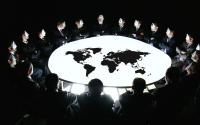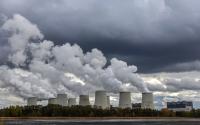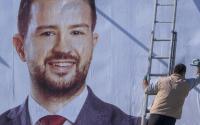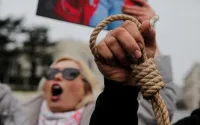The consequences of a US attack on Iraq would be devastatingThe Guardian, Tuesday November 20, 2001Last Wednesday, an Iraqi Airways Boeing 727 civilian airliner was climbing out from Basra, Iraq's southern port, when the ether crackled at 121.5 megahertz with an unmistakable American voice: "This is the United Nations [sic] no-fly zone enforcement patrol calling Iraqi airliner travelling at 21,000 feet proceeding at 400mph north-west from Basra. I warn you that you are subject to being fired upon - you continue to fly at your own risk."
Thus in the middle of a war against terrorism, falsely claiming a UN mandate - the "no-fly zones" are in fact imposed unilaterally by Britain and the US - an allied pilot was threatening 180 civilian passengers with airborne death. That would have created quite a desert storm.
I might not have believed this story if an Iraqi official had told me. But as chance would have it for the US pilot, I was on that flight, sitting in the cockpit with Captain Akram, who disdainfully ignored the warning. Also on the aircraft were Lord Naseer Ahmed, Britain's first Muslim peer, and the solidly Blairite MP Kerry Pollard.
Together with Sunday's incident in the Gulf, when a tanker carrying Iraqi oil sank after being boarded by US servicemen - with the loss of up to six people, including two Americans - the signs are that US policy towards Iraq is poised on a bayonet point. Bombing, argue the hawks roosting on the Potomac, has achieved two regime changes in a row, in Yugoslavia and Afghanistan, without the loss of a single American in action. Time to go for the hat-trick in Iraq, they say, closing the unfinished business left by Bush the father in 1991.
Having just returned from the Arab world, I would caution against it. In the first place, the Yugoslav triumph is not what it seems. Almost 65,000 Nato soldiers continue to garrison Bosnia and Kosovo. Albanian nationalism, as the weekend elections in Kosovo showed, is all dressed up with nowhere to go, except secession in Serbia and destabilisation in Macedonia. The soldiers police a protectorate liable to turn nasty at any time.
Nor is the Anglo-American "victory" in Afghanistan either remotely final or clear-cut. If possession of Afghan cities were the issue, Leonid Brezhnev would have been a hero. A decade of attrition from the mountains and on the plains cost the USSR much blood and treasure and arguably its very existence. And in those days the so-called Holy Warriors were united.
Now the ragtag and bobtail army of the Northern Alliance - for whom, like the KLA before them, we were the airforce - is a powder-keg of ethnic, religious and tribal loyalties waiting to blow up in our face. The alliance, a collection of heroin-dealing cut throats who laid waste to Afghanistan the last time they were in power, have not waited long before reverting to type. British television viewers have been largely spared their penchant for castration, mutilation and massacres of prisoners. Viewers of Arab stations have not.
Meanwhile, the network of Islamist terrorists said by Colin Powell to be ensconced in 50 countries can scarcely be expected to fold up their tents and take up Turkish tapestry. Contrary to the predictions of wild-eyed optimists, there is no reason to believe they will be demobilised or demotivated by search-and-destroy operations in the caves around Kandahar. If anything, Bin Laden dead is likely to be a more potent force than Bin Laden alive. And you don't need a redoubt in the Hindu Kush to learn how to be a killer, as the hijackers of September 11 showed. Florida or Hamburg will do just as nicely.
The Arab consensus against any widening of the conflict has helped force the first apparent chink of light between the shoulders of the Anglo-American alliance. Mr Blair has let it be known that Britain is opposed to an attack on Iraq. If sincere, that could be significant, for with the exception of Israel, no other country in the world is likely to support such an assault.
But, as Bob Monkhouse observed, "once you can fake the sincerity, the rest is easy". On Sunday, our most militant foreign minister, Ben Bradshaw, repeated the mantra about there being no evidence of Iraqi involvement in September's atrocities. But he added ominously that "of course if such evidence were to emerge, that would be a quite different matter". The cooks and spooks may even now be baking it.
Both the incidents at sea and in the air and the imminent security council decision on Anglo-American "smart sanctions" - with the demand for the return of weapons inspectors withdrawn before the 1998 Desert Fox fiasco - may be straws in the mistral, harbingers of a whirlwind to come. Iraq is girding itself for massive attack and counting on the political earthquake in the region which would ensue. It would not need to climb high up the Richter scale to topple some of our oldest and most quiescent friends.






